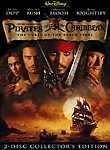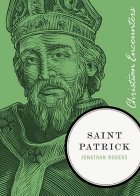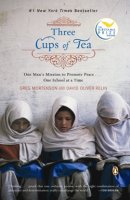 Pirates of the Caribbean: The Curse of the Black Pearl (Walt Disney Pictures, 2003, PG-13)
Pirates of the Caribbean: The Curse of the Black Pearl (Walt Disney Pictures, 2003, PG-13)
I realize I'm seven years behind most of the rest of the country in watching this movie, but at last I understand why our nephews love it so much. Maybe it's another example of the value of low expectations, but I can't remember the last time I enjoyed a movie so much. Just pure fun. Probably not grandchild material yet, but I wouldn't rate it worse than PG myself.
Sure, it's as unrealistic as Indiana Jones, and they break the rules of physics, biology, history, and more, but it's easy to suspend disbelief because it's not pretending to be real, or true to a book I love. It's plain fun, like the Disney Pirates of the Caribbean ride that inspired it. Perhaps the ride is one reason I enjoyed the movie so. Having had virtually unlimited access to the Disney parks when the kids were growing up, we became very familiar with this ride, and catching references to it in the movie is more fun than finding hidden Mickeys in the parks. The music is great, too.
We missed having Janet around, though. She would have told us in the beginning, "Hey, that guy played Legolas in The Lord of the Rings," whereas we only figured it out when the credits scrolled by.I had to watch it, since my genealogical organizations, websites, and contacts kept bringing it to my attention: NBC's new genealogy show, Who Do You Think You Are? My reactions? Mixed.
Each week, apparently, the show will present an investigation into the family history of one person. Supposedly these are famous people; I haven't heard of any of them, but that helps me concentrate on the data, which I find more interesting anyway. (More)
Beer, bread, cheese...and now musical instruments. Jan Swafford's recent Slate article, In Search of Lost Sounds, mentions that in Europe, artisanal craftsmen are creating reproductions of period instruments for those interested in more flavors than the standardized, homogenized, modern sound. This comes as no surprise, since Janet owns at least three such instruments.
The article is long, and some of my readers will be tempted to skip it, but please don't. Skip the text if you wish, but don't miss the recorded excerpts, which are Flash objects that I can't reproduce here. Hear Beethoven, Brahms, and Debussy on the pianos of their day, and compare the sound to the same music on today's instruments. Whichever you like best, you'll agree that the older instruments have a different and often exciting flavor. (They also occasionally sound out of tune to me, and I'm wondering if it's my ears, the recording, or a different tuning of the pianos—though I thought equal temperament tuning was common by Beethoven's time.) (More)
Permalink | Read 2440 times | Comments (4)
Category Random Musings: [first] [previous] [next] [newest]
 Saint Patrick, by Jonathan Rogers
(Thomas Nelson, Nashville, 2010)
Saint Patrick, by Jonathan Rogers
(Thomas Nelson, Nashville, 2010)
This new biography of the man whose feast day we celebrate this month is part of Thomas Nelson's Christian Encounters series. I was pleasantly surprised by the intellectual seriousness of this book, which I had expected to take a light and popular approach. It is certainly accessible, and short—just over 100 pages of text, plus appendices and notes—but packed with what little definitive information there is about this 5th century saint.
Although legends about St. Patrick abound, all that we truly know of him is deduced from two documents, written by Patrick himself later in life. Translations of both are included in the appendices. Rogers weaves together passages from these texts with cultural and historical background information to create a picture of both the man and his times. (More)
 Three Cups of Tea: One Man's Mission to Promote Peace...One School at a Time, by Greg Mortenson and David Oliver Relin
(Penguin Books, New York, 2007)
Three Cups of Tea: One Man's Mission to Promote Peace...One School at a Time, by Greg Mortenson and David Oliver Relin
(Penguin Books, New York, 2007)
Greg Mortenson, the son of missionary parents, had a happy childhood in Africa, but his return to the United States as a teenager was rough, and it took him a long time to find his way. As he tells it, it took a dramatic failure to lead him to his calling—but I disagree that someone has failed who has not succeeded in climbing the infamous K2 because he expended too much time and energy rescuing a climber in distress. Whatever you call it, from that point in 1993 on, Mortenson's energies would be spent on a different form of rescue: building schools and promoting education, especially for girls, in the remote, impoverished villages of Pakistan and Afghanistan. Mortenson was nominated for the Nobel Peace Prize in 2009; even President Obama's most enthusiastic supporters cannot read Three Cups of Tea without entertaining a doubt or two as to the wisdom of the Nobel Committee's final choice. (The Nobel Committee overlooked Gandhi, too, so their peculiar judgement is not without precedent.) (More)


